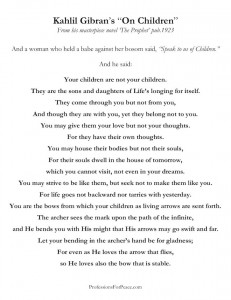More thougths about who are we researching with/what are we researching for…
From Connell, R. (2013). Using Southern Theory: Decolonizing Social Thought in Theory, Research and Application. Planning Theory, 13(2): 210-‐223:
“To make neoliberal ranking exercises work, authorities must assume there is a homogeneous domain of knowledge on which the measuring operations may be performed.”
“The role of the periphery is to supply data, and later to apply knowledge in the form of technology and method. The role of the metropole, as well as producing data, is to collate and process data, producing theory (including methodology), and developing applications which are later exported to the periphery. Within this structure, Hountondji argues, the attitude of intellectuals in the periphery is one of “extraversion,” i.e. being oriented to sources of authority outside of their own society.”
In our research, who is on the periphery? In what ways are we (or not) the metropole? How can we be more like an peripheral intellectual with orientations towards our own contexts/communities?
creativity in education
“Schools tend to inhibit creativity in general and individual talents in particular… If you personalize education…if you engage children’s imaginations…you get much higher results, much deeper commitment, and a far more resilient process of education…
Creativity now is as important in education as literacy, and we should treat it with the same status…
Creativity is probably the most fundamental set of capacities that distinguishes us as human beings…the process of having original ideas that have value…it’s absolutely at the heart of what it means to be a human being…
One of the ways you get kids to read and to write…is to fire up their imaginations, give them interesting stuff to read, give them challenging things to write. These [literacy and creativity] aren’t opposites, they are complimentary processes that help define what it is to be a human being.
“If you’re not prepared to be wrong, you will never come up with anything original…most kids have become frightened of being wrong…and we’re now running national education systems where mistakes are the worst thing you can make, and the result is that we are educating people out of their creative capacities.”
–Sir Ken Robinson, speaking at a TED conference
http://blog.ted.com/2006/06/27/sir_ken_robinso/
Urban Education & Social Action
“…But I believe there are compelling reasons that urban education—and urban educators—ought to be a fulcrum of movement building.
A most important reason is the theoretical location of urban education. Urban schools ate at the center of the maelstrom of constant crises that beset low-income neighborhoods. Education is an institution whose basic problems are caused by, and whose basic problems reveal, the other crises in the city: poverty, joblessness and low-wages, and racial and class segregation. Therefore, a focus on urban education can expose the combined effects of public policies, and highlight not only poor schools but the entire nexus of constraints on urban families. A well-informed mobilization centering on education would challenge macroeconomic federal and regional policies and practices as part of an overall plan to improve local educational opportunity.
Moreover, even though education is not guaranteed by the U.S Constitution, it is often construed as a civil right, and can be located ideologically in the long and powerful tradition of civil rights struggle (Anyon, 2005, p. 177-178).”
Reflexive Writing-Research Questions
I began thinking through my research more concretely and deeply last week, by doing some of Wendy Luttrell’s Reflexive Writing exercises. These led me towards two connected, but definitely different, research questions. While they are still very broad and potentially way too much, I feel really excited that my direction is becoming clearer. I can’t express how much your feedback would mean, if you have the time/energy.
thank you!Reflexive Writing-My Topic
Mural Project
This is a video from the mural from 2013. The artist, Noel Hefele, was our first “Engaged Artist Resident” whose role was to work with the community while creating his own body of work. It was our role, as researchers, to learn the kinds of connections students were making with their natural world, in terms of their identities as Barbudans, through the images they collectively incorporated into the mural. I will welcome your thoughts! http://youtu.be/HCdVwigxAm0



